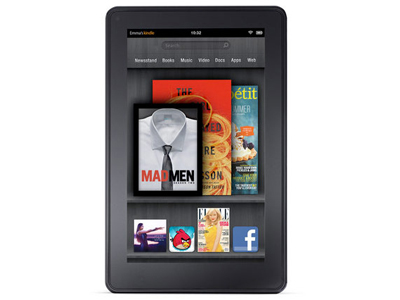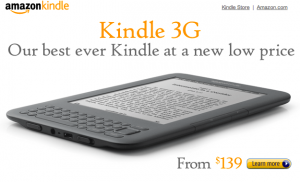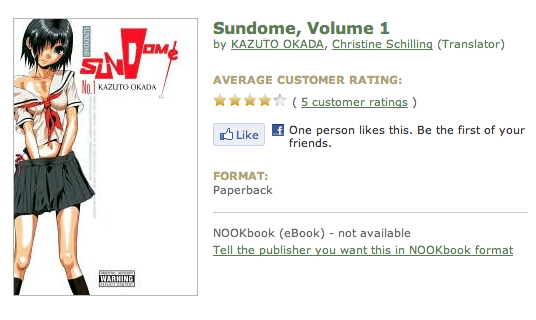 In probably one of the worst kept secrets in tech history, Amazon unveiled its much anticipated new color Kindle today, the Kindle Fire. In addition to the Fire, Amazon is releasing 3 new eInk Kindles, a $79 non-touch model and two touch screen Kindles. One with WiFi and the other 3G.
In probably one of the worst kept secrets in tech history, Amazon unveiled its much anticipated new color Kindle today, the Kindle Fire. In addition to the Fire, Amazon is releasing 3 new eInk Kindles, a $79 non-touch model and two touch screen Kindles. One with WiFi and the other 3G.
While this Bloomberg report describes the Kindle Fire as a tablet computer, and much has been made of it being an “iPad killer”, I think Barnes & Noble has more to be concerned about than Apple. At $199, it’s $50 less than the Nook Color and its lack of a camera and microphone is more evidence that the Kindle Fire is more of a response to competitor B & N in filling a hole in the the Kindle lineup from which the Nook Color had garnered some success.
Amazon has an extensive Kindle Fire page that reveals a powerful color eReader prepared to take back any ground lost to the Nook Color in children’s books, magazines, or games like Angry Birds. Like Kindles before it, the Kindle Fire is clearly designed to sell Amazon books and content, including movies and TV shows.
I suspect that Amazon has discovered that iPad folks and Kindle folks are two different markets. They overlap a bit, but not enough to make the Kindle Fire a more general purpose tablet like the iPad. And Amazon’s well developed information infrastructure, which will leveraged in the Fire’s Silk browser, will more than deliver on the promises they’re making content wise. The Kindle Fire is a nuclear powered reader’s tablet. The iPad will feel the heat, but the Nook Color will be the one getting burned in all likelihood.
Of course the game is not over yet. Barnes & Noble is expected to be announcing the next Nooks soon. And I would be surprised if the Nook Color doesn’t see a price drop ahead of the Kindle Fire’s November availability date. So stay tuned!
More info:



